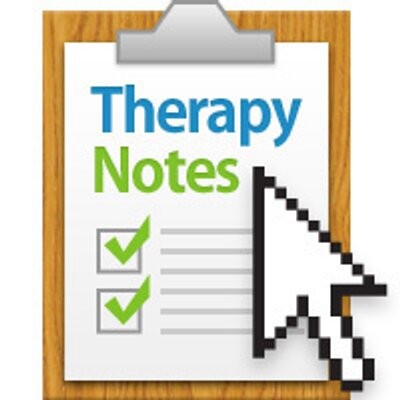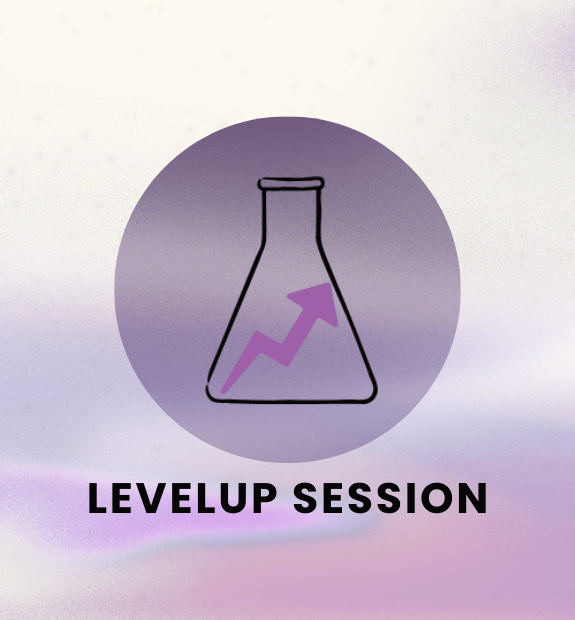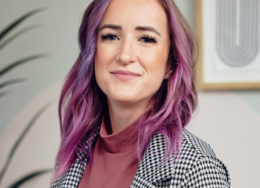Episode 244 05 Jun, 2024
Integrating Psychedelic-Assisted Therapy Into Your Practice with Christopher Brown
-
 With Christopher Brown
With Christopher Brown

Ever wondered how psychedelic-assisted therapy is reshaping mental health treatment?
In this episode, I dove into the transformative realm of psychedelic-assisted therapy with the incredible Christopher Brown. As a social worker and military veteran, Christopher brought a wealth of knowledge from his transition from the VA to his own private practice, where he’s pioneering in this field of mental health treatment.
Our conversation was a deep dive into the intricacies of integrating psychedelic-assisted therapy into a group practice. We explored the legalities, the ethical considerations, and the compelling research that’s changing the way we look at treatments, especially for conditions like PTSD.
Join us to hear more about:
- Christopher’s transition from the VA to private practice and how his military service informs his work in psychedelic-assisted therapy.
- The current research and the growing evidence base for treatments like MDMA-assisted therapy for PTSD.
- The complex legal and ethical issues surrounding the use of psychedelics in therapy.
- The importance of understanding and adhering to current laws to safely integrate these therapies into practice.
- Steps therapists can take to receive specialized training in psychedelic-assisted therapy.
My discussion with Christopher was not just informative but also a clarion call to group practice owners. The potential of psychedelic-assisted therapy is immense, and as we navigate this new terrain, it’s essential to do so with diligence, respect for the law, and a commitment to the highest ethical standards.
Thanks for listening! Like what you heard? Give us 5 stars on whatever platform you’re listening from. Need extra support? Join The Exchange, a membership community just for group practice owners on our website www.thegrouppracticeexchange.com/exchange. Talk to you next time!
Resources mentioned in this episode:
Connect with Christopher Brown
This episode is sponsored by TherapyNotes. TherapyNotes is an EHR software that helps behavioral health professionals manage their practice with confidence and efficiency. I use TherapyNotes in my own group practice and love its amazing support team, billing features, and scheduling capabilities. It serves us well as a large group practice owner.
Do you ever wish for a financial therapist who could relieve you from the last few months of bookkeeping, talk you off the edge when you’re running into issues with Quickbooks, or help you work through a profit plan for growth? GreenOak Accounting does just that! GreenOak Accounting is an accounting firm that specializes in working with group practices. Their value goes WAY beyond bookkeeping; they can help you get on track for financial success. Schedule a free consultation by going to http://greenoakaccounting.com/tgpe
Transcript: Christopher Brown
Maureen Hermann (00:00:02) – Welcome to The Group Practice Exchange Podcast, where we talk about all things related to group practice ownership. I’m your host, Maureen Hermann.
This episode is sponsored by Therapy Notes. Therapy notes is my favorite EHR, and it’s one that I’ve been using in my own group practice since 2014. They’ve got everything you need to be successful in your group practice, and they’re constantly making updates and have live support. If you want two free months of therapy notes, go to therapynotes.com/r/thegrouppracticeexchange.
Need a new accountant, bookkeeper or fractional CFO? Green Oak Accounting is an accounting firm that works specifically with private practices. I’ve been using their fractional CFO services for many years in my own group practice, and I couldn’t grow my business without them. Mention TGPE to get $100 off your first month.
Welcome back to another episode of the Group Practice Exchange podcast. Today I have social worker Christopher Brown with me, and he’s going to be talking about integrating psychedelic assisted therapy into your practice. For those of you who are subscribers of The Visionary, he also wrote an article that will be coming out in the magazine sometime in April.
Maureen Hermann (00:01:28) – It should be in your doorsteps. And so I just want to say I appreciate you coming on, Chris, and talking about this, because you’re my first person that I have any amount of experience with, who’s the expert in this kind of field. And so obviously, as you know, it’s something that over the past few years has become increasingly more and more relevant in our industry. And there’s more conversations happening about it. And so I’m really excited to get feedback from you on integrating psychedelic assisted therapy in group practices and what that experience is like and what you’re seeing trend wise in it. So welcome.
Christopher Brown (00:02:03) – Yeah, absolutely. Thank you and honor to be here. Yeah.
Maureen Hermann (00:02:06) – Tell me first, because I’m new to knowing you a little bit about you and like what got you into this field specifically psychedelic.
Christopher Brown (00:02:13) – Yeah. So I’m a military veteran and I worked at the VA after I did my own healing process in the late early 2000. I worked at the VA as an intern starting 2014 and then full time from 2016 doing PTSD therapy.
Christopher Brown (00:02:31) – I was an eMDR provider. I got trained really early on in eMDR, and that was my jam for trauma work, and I had a few clients over the years who, unbeknownst to me, had gone and done like an ayahuasca ceremony or some sort of psychedelic experience. And initially I was kind of a skeptic, but I would sort of probe them with the same line of questioning that I would often do in a follow up session after eMDR to kind of see how thoughts and, you know, emotions may have shifted over, you know, since the previous session. And I was pretty shocked to be hearing the same kind of responses from folks who had gone and done these experiences, as I would have expected after someone had done, you know, multiple eMDR sessions. And so I couldn’t ignore that. Right. And so I, I started doing a little bit more reading. And, you know, this was in the, I guess, maybe 20, 20 time frame. I had the chance to take the maps MDMA assisted therapist training through the Bronx, VA.
Christopher Brown (00:03:36) – And this was like when Covid was going on. And so it was a virtual training. But, you know, it was 100 hour training, and the trainers were the folks who had led the Maps trials over the years. So it was really rich experience getting to learn from them. And that really opened my eyes because we were seeing, you know, live videos of psychedelic assisted therapy sessions with MDMA, I guess not live recorded videos, but, you know, tracking a few clients over the course of their treatment through the FDA trials. It was just shocking at the level of healing and change that I was seeing there. And so that really like that was what introduced me to like, what’s really possible with psychedelic assisted therapy. And, you know, I didn’t see that there was going to be an opportunity to get into that field working with the VA. so I left and started my own private practice about a year ago. And ever since I took that training with maps, I was trying to find ways to get involved and share information resources with others.
Christopher Brown (00:04:45) – So I put together like an open source, sort of just call it a curriculum. It’s more of a list of free, public domain kind of resources that are out there for therapists that might want to start learning more about this. But once I moved in to private practice, that gave me a lot more time to to start focusing more closely and really discover the nuance that exists, which I think we’ll probably talk a little bit more about here.
Maureen Hermann (00:05:08) – Yeah. What have you learned, I guess, in this past year. So taking, you know, trainings and information that you got previous to maybe being able to implement it in the VA to starting your own practice, what has that journey looked like for you of taking what you’ve learned and being able to implement it?
Christopher Brown (00:05:28) – Yeah, well, for me, step one was to do what I call like ethical legal due diligence. You know, I looked at my state laws, obviously understanding federal laws around controlled substances, looking at my disciplines, national best practice standards.
Christopher Brown (00:05:47) – And I actually like put together a 20 page paper. It’s kind of an annotated analysis of the different laws and standards that I identified that relate to this, articulating how what I do in my. Practice basically doesn’t compromise the integrity of of the ethics that I was reading. And so like as a licensed clinician, in order to do work with clients with any kind of controlled substances, you have to be part of an FDA approved trial or essentially like go practice in another country or maybe in Colorado or Oregon now that states are starting to decriminalize. But, you know, I think there’s still largely figuring that out because we’re at the federal level, these are still controlled substances, but with ketamine, you know, that’s kind of a unique one. There’s clinics all over the country that are offering ketamine therapy, and not all of them are actually doing, you know, the traditional talk therapy around it. It’s more of just like a some of my colleagues would call it a ketamine mill, where, you know, they just give people the medicine, but don’t do a whole lot of follow through on the therapeutic side.
Christopher Brown (00:07:01) – And so I saw an opportunity there to start, you know, supporting folks who might be going through some sort of independent pursuit of psychedelics, supporting them, you know, on the preparation or the integration side before and after. So that’s kind of how I’ve focused my practice. You know, within the psychedelic assisted therapy model, there’s three phases. There’s the preparation before, there’s the experiential with the psychedelic, and then there’s the integration after. And just as an example, like the Maps protocol, the 15 session protocol. And only three of those sessions use MDMA. Yeah. So it’s a lot of therapy happening. And even the placebo group, they demonstrate some improved symptoms because they’re getting a lot of therapy. Yeah. So yeah that’s kind of how I’ve focused my approach. And so phase one, phase three I’m not trying to do research. So I’m not, you know, participating in FDA trials. So yeah that’s kind of how it’s shaking out. And when I talk about nuance there’s Pat. So psychedelic assisted therapy.
Maureen Hermann (00:08:09) – I’m glad you’re bringing this.
Christopher Brown (00:08:09) – Up. Yeah. So that’s the full three phases. And then the three which is what I do. Psychedelic harm reduction and integration therapy. That’s more lenient on phase one and phase three support for clients. So clients who might be independently pursuing their own psychedelic experiences, being able to have harm reduction and form conversations with them before or after.
Maureen Hermann (00:08:34) – So our clients seeking you out for this, or are you connecting with local businesses that provide giving it out and then maybe aren’t having therapists on staff to like do the integration afterwards or beforehand? Is that how you’re working is like connecting with them and being like, I’m here to kind of be the bridge between your step two.
Christopher Brown (00:08:54) – Yeah, it’s a little bit of both. I have connected with a few local ketamine clinics and let them know about what I do. I’ve had a few, you know, referrals coming from them directly. And that’s that’s always, I think nice. Because the tricky part about with the way regulations are right now, and this is something that I learned when I was doing my due diligence as licensed clinicians, we’re not legally allowed to coordinate with like an underground guide.
Christopher Brown (00:09:21) – And so it’s a weird, tricky position to be in if there’s a client who’s, like, planning to do something that’s less than ideal in terms of ethics or legality, but with the ketamine clinics, you know, like these are above board clinics and these are other licensed providers, it’s a lot easier to have that type of interaction and collaborative care approach. So yeah, it’s a weird time to be doing this. But I guess as far as things go, it’s better now than it was ten years ago, right?
Maureen Hermann (00:09:53) – I’m hearing so much about it and have done my own research in my own group practice to see how well it can align, like vision wise, with just the way my practice is structured. Yeah, and I’ve met with a couple group practices that do this kind of work, and there is a lot to think about. I don’t know if you’ve ever heard of the Colby assessments, you can look them up online. It’s it’s a cool assessment for like leaders. And I’m what’s considered a quick start, which just means that I come up with ideas.
Maureen Hermann (00:10:21) – I like to just go for them. I don’t mind making mistakes and being like, let’s reroute. That didn’t work. You know, I’m not, like, debilitated by researching and needing to know everything which will never happen and making that start. But the problem with that is in some of these like bigger types of decisions, like this was probably one of the first times that I didn’t just jump in because as I went and met with people about what the process was to provide ketamine assisted therapy, there is a lot to consider. So I just wanted to know, like from your perspective, of just having done this background research for a while now, what steps would you recommend that practice owners who are. Interested in this. Who? Maybe I know a handful who have done it themselves as like a client. And I’ve seen the effects and I’ve been like, this is why I want to do this in my or offer this in my practice. What proper steps would you recommend they take? Or trainings or, you know, supervision maybe.
Maureen Hermann (00:11:17) – What things would you say to look into before saying yes to something like this? Not saying yes from taking it perspective. Saying yes as an offering it.
Christopher Brown (00:11:25) – Yeah, exactly. So when you think about and this is something I had to think about when I was first starting this, what would my state licensing board say? What would they ask? And it turns out some of the the most important things that they will look for, for any therapist that’s doing any type of treatment on the, I guess, like the edge of their scope. Did you consult, did you seek supervision? Did you pursue training like that’s number one and consultation training? I think that depending on the type of approach, you know, the Pat versus the free, I think that’s going to determine at what level of training you need to pursue or consultation or supervision you need to pursue. If somebody is doing Pat, you know, like trying to get on board with the FDA approved trial, or maybe they’re in a state where these things are becoming less of a regulatory issue.
Christopher Brown (00:12:24) – That’s the experiential phase of this work. There are a lot more considerations that need to be made than if you were just to show up, to provide therapy to somebody before or after they had an experience.
Maureen Hermann (00:12:39) – So for those listening, explain really quickly. I understand the difference only because I went into a meeting and was taught this, but explain the difference between ketamine assisted therapy and free. What is the acronym?
Christopher Brown (00:12:52) – Yeah, ketamine. Whether we’re talking about ketamine assisted therapy, psychedelic assisted therapy, MDMA assisted therapy, like any therapy where you’re a therapist in the room where a mind altering substance is being administered, there are a lot of additional sets of of knowledge you need to have, you know, whether it’s medical or just understanding the mechanisms in play with the brain, with these different substances, being able to like there’s a lot of like self work that needs to be done, because if you’re not balanced in a room with somebody who’s in that state, they’re going to pick up on that and it’s not going to be good for the client.
Christopher Brown (00:13:32) – So there’s a lot of additional considerations that there’s a lot of trainings these days that will help therapists sort through and understand more clearly. But if you’re taking the free approach of just showing up before or after, you know, therapists already have most of the training required to be productive there. And so I think it would really just come down to, you know, maybe if you’re if you’re wanting to target, maybe you want to partner with a local ketamine clinic and you want to target like that is your niche, then maybe just take a shorter, you know, a day long training about ketamine, ketamine therapy, just to learn more about what that’s like for the client, maybe even do your own experiential experience with the local ketamine clinic, just to understand kind of what it’s like for the client to go through that. Most grad schools, I think, still encourage us to do our own therapy before we become therapists for others. And I think the same certainly applies when we’re talking about the psychedelic stuff. But I don’t know if I answered your question.
Christopher Brown (00:14:39) – No.
Maureen Hermann (00:14:39) – You did. It was something that I didn’t realize initially was that there’s as a business owner in the therapy world, you can choose to offer the full scope, including having medical in your office, providing the actual psychedelics, which comes with a whole slew of like, where do you store it, all these things, right? Or going, you know, the route of people go and take it externally, not in your practice, but you can still be a part of it through having them come pre and post. So I just wanted to, for those that have no idea about this or this is like their first dip into learning about it. Wanted them to hear from you that there are sort of two general routes you can go and be a part of this as a practice.
Christopher Brown (00:15:22) – Yeah. And I think it’s important to say, whenever this conversation is happening, that it’s always good to consult with an attorney. Yeah. Before you make any of these decisions. Exactly. Because what is true in one state may not be true in another.
Christopher Brown (00:15:38) – So making sure that you do that due diligence I think is really important. Yeah.
Maureen Hermann (00:15:43) – What kind of barriers have you seen or obstacles have you seen with group practices or solo practices who are wanting to implement or incorporate psychedelic therapies into what they do? What kind of barriers do you see to that, that maybe, you know, could be a great proactive sort of thing for people thinking about?
Christopher Brown (00:16:01) – Now. Yeah, well, I think one is certainly just the knowledge gap and understanding the nuance that we’re talking about today like that can be a barrier. Not understanding that, you know, you actually might be easier to start on this than you think, if you understand, like that three phase model and which pieces of it you want to support. Another barrier though, and this is much more just, I guess, practical, logistical, and this is an issue I ran into, was really strange for me and kind of frustrating. I was trying to bring my business to a smaller EHR, and I had to apply to do a payment processing with them.
Christopher Brown (00:16:45) – And the underwriter that they were using went to my website and saw that I am doing psychedelic harm reduction integration therapy, and they denied my application and I didn’t have any way to advocate to say like, you know, I’m not actually working with these substances. I’m not doing anything illegal. But, you know, I had to bring my business back to the EHR I was using before because the payment processor they use, it wasn’t an issue. With so little things like that. I think, you know, are important to think about to the others are I think a lot of the other barriers can be answered with that sort of due diligence phase. Just doing some research about state, federal, your discipline guidelines and being able the like. Honestly, the reason I did that 20 page paper with my due diligence was so I could know for myself if my state board asked anything, I could just give them this great. And like, I don’t need to worry about it. I could sleep at night. Yeah, so those are some of the big ones.
Christopher Brown (00:17:53) – But I think another one is perceptions from colleagues. It’s still a mixed bag out there in terms of providers that understand you maybe have haven’t read the research, haven’t talked to anyone who’s had like significant benefits and they just don’t get it. Yeah, I remember I brought this up in a staff consultation a few years ago and a local provider, when they heard the word psychedelic assisted therapy, their brain went straight to drug seeking behavior. And it was just like a completely different paradigm that some folks are still living in. So yeah, I think there’s still really that going on, but I’m hoping that that’s, improving. As each study comes out, each headline comes out to validate this stuff.
Maureen Hermann (00:18:47) – Which goes to my last question for you. And I know a little bit because I got to read your article, but what are some current or key pieces of research or findings that you’ve read that kind of just share the usefulness and likely increase of effectiveness or people using it in the future, because I feel like it’s just becoming more and more talked about, and likely because of the research that’s coming out, kind of showing how impactful it is.
Christopher Brown (00:19:16) – Yeah, well, maps the MDMA assisted therapy trial, phase three. They finished it. They’ve put in their application in the FDA. Hopefully by August there will be some decision on that. But their research showed 60% of participants who started with moderate to severe PTSD. Their symptoms went down so far to essentially say like they lost their diagnosis. Oh, wow. And that’s 60% like that’s not something that you see. No. In other areas of like I didn’t see that in anything that came out in all those years I was at the VA. Often it’s like the opposite, like 60% of meds aren’t working for people. Right? So that’s one that I think is at the forefront. And, you know, MDMA was kind of first. And what it seems like is psilocybin and LSD, those seem to be the ones sort of, that are starting to build the next largest body of research, but one that, you know, we asked about trauma and PTSD. MDMA, I think is the biggest one.
Christopher Brown (00:20:22) – But another one that I learned about recently is ibogaine. They did this study with ibogaine, which is I honestly don’t know enough about it, but it seems like a blend of plant medicines similar to ayahuasca that creates the psychedelic experience. And there’s an organization called Vets Veterans Exploring Treatment Solutions that sends special forces veterans to countries where ibogaine is legal and they have therapeutic ibogaine experiences. And they did a study there that found a reduction in PTSD symptoms, 88% of. Participants reduce PTSD symptoms 87%, reduced depression 81% reduced anxiety. And a lot of these vets have TBI also. And they did so they did cognitive testing and showed like an improvement in concentration memory impulsivity. So ibogaine seems to be another real promising one for trauma stuff specifically. But yeah, I mean there’s I saw something just this morning, somebody was doing a review of all the research that’s out there. And there is more. But what they picked was from like 160 studies that have been put out, like the body of research is growing to something that is certainly valid.
Christopher Brown (00:21:44) – Yeah, yeah. So anyone can hop on PubMed and find that for themselves. Yeah.
Maureen Hermann (00:21:50) – I really appreciate you coming on and sharing your expertise on this. For people who are interested to learn more about this, I know you said you offer consultation. Where can they find you?
Christopher Brown (00:22:00) – Yeah. So my website is PeakPsychotherapy.co. So peak like a mountain peak and .co without the M you could see how I market psychedelic integration on there. You can go through the menu and find the consult. I have a consult group that meets weekly on Mondays and biweekly on Fridays. And we can do individual consults as well. Just need to get in touch with me first to check availability.
Maureen Hermann (00:22:28) – Awesome. Thank you so much for coming on. Thank you on a Monday afternoon and taking some time out. And also again, appreciate you writing the article as well, that I’m excited to have it come out in the next couple of weeks. So yeah, likewise. Thanks for what you’re doing and thanks for taking this time out.
Christopher Brown (00:22:45) – Appreciate you. Thank you so much.
Maureen Hermann (00:22:47) – Thanks for listening. Give us five stars on whatever podcast streaming service you use and I’ll see you next week.
Thanks For Listening
Thanks for listening to The Group Practice Exchange podcast. Like what you heard? Give us five stars on whatever platform you’re listening from. Need extra support? Join The Exchange, a membership community just for group practice owners with monthly office hours, live webinars, and a library of trainings ready for you to dive into. See you next week.
Resources
Here are the resources and guides we recommend based on this episode
Therapy Notes
*Need a good EHR for your group practice? TherapyNotes is it. I’ve been using it for years in my own group practice, and it does really well when it comes to having the features group practice owners need. Try it out for FREE for 2 months by clicking here.

GreenOak Accounting
Specialized Accounting for Private Practice
At GreenOak Accounting, we offer accounting services that cater specifically to solo and group therapy practices. Our services range from bookkeeping to budgeting & forecasting, Profit First support, profitability analysis, payroll, tax preparation, compensation analysis, and much more.
Through working with over 100+ therapist clients, we have seen what works and what doesn’t, so our team can help guide you on the path to financial. Our specialized services can be customized based on the size and needs of your private practice.
For more information about our packages and the different ways to work with us, please visit our website at https://www.











